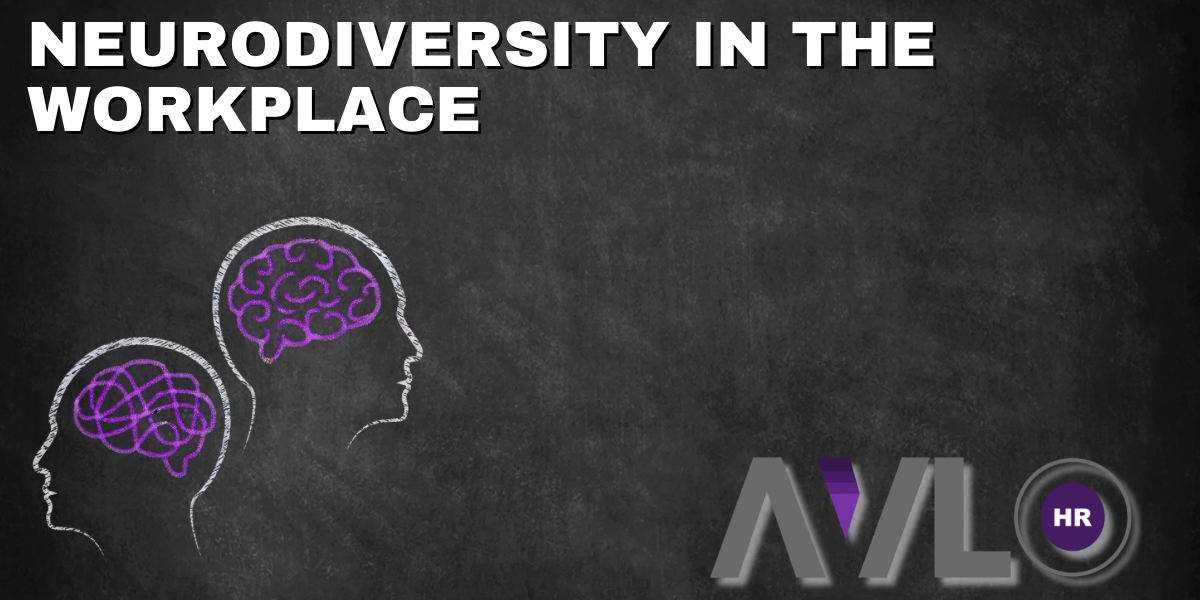The term neurodiversity is an umbrella term to describe different thinking styles that affect how someone’s brain processes, learns or behaves. Every brain is unique. This concept recognises that there isn’t just one ‘right’ or ‘normal’ way of thinking, and instead we should consider an array of different cognitive styles. Neurodivergent people have different thinking styles and perspectives, however the benefit is that this can lead to new ideas or creative ways of working. As a result, today we explore the impact neurodiversity in the workplace could have on your company.
Types of neurodiversity in the workplace
There are lots of different types of neurodiversity, some examples include: Autism, ADHD, Dyslexia, Dyspraxia, Dysgraphia, Dyscalculia and Tourette’s. There are many strengths in neurodiversity, the key is in understanding and harnessing that strength. Such strengths include innovation and creativity, accuracy, unique problem-solving abilities, logical thinking, attention to detail and deep focus. This can then lead to organisational success, stronger teams and innovative thinking.
To get the most out of neurodivergent employees, you should:
- Recognise that many individuals with neurodivergent conditions experience challenges.
- Ensure the correct support mechanisms are in place and consider any reasonable adjustments to remove barriers that may prevent your employee from carrying out their duties.

Accommodating individual needs
Understanding and accommodating individual needs is essential to creating a positive and supportive working environment. Start at the beginning of the employment relationship, consider how you recruit and how you present yourself as a company. Consider what your job posting says, make sure this does not unintentionally exclude or discourage neurodivergent individuals. Keep the language simple and specific. Aim to avoid overly abstract terms like ‘strategic thinker,’ instead replace this with specific skills and job tasks. If an applicant clearly understands the role, they may be more likely to apply.
The impact of neurodiversity during the recruitment process
Consider the impact of neurodivergent behaviours during the recruitment process. This may look like a candidate avoiding direct eye contact during an interview, struggling with small talk or taking more time to respond to communications. Do not mistake this for disinterest or lack of professionalism. Understand that this may be their way of interacting. Train managers in your recruitment processes to understand these traits and to ensure that unconscious bias does not impact decision making. Consider if the recruitment tools you are using achieve your objective – for example a structured interview or a personality test may lead to an inaccurate or incomplete evaluation of ability or fit. Instead, consider using a combination of assessment methods.

Retaining neurodiversity in the workplace
Once you have attracted and recruited your neurodivergent talent, you then have to retain this talent. So how do you do that?
- Build a culture of empathy.
- Ensure the day-to-day employee experience is attractive as this will shape someone’s decision to remain in your employment.
- To support your culture of empathy, consider training for all employees on neurodiversity.
- Teach employees the value of this alternative thinking and ways of working.
- Create an environment where employees feel comfortable to have open conversation and build strong connections.
The key to creating a neuroinclusive workplace is a positive and inclusive culture!
As always, if you have any questions on anything you’ve read here, please do get in touch.








